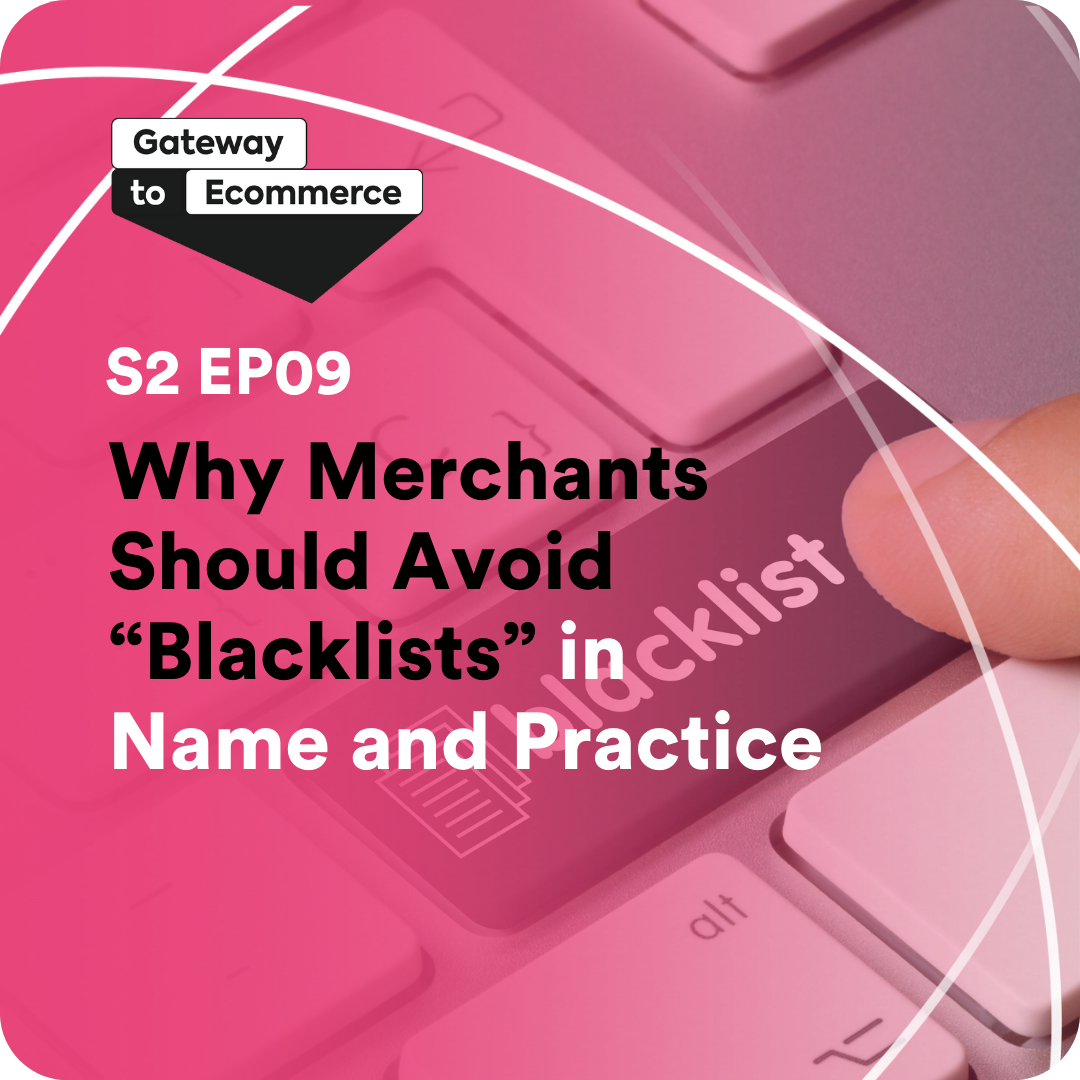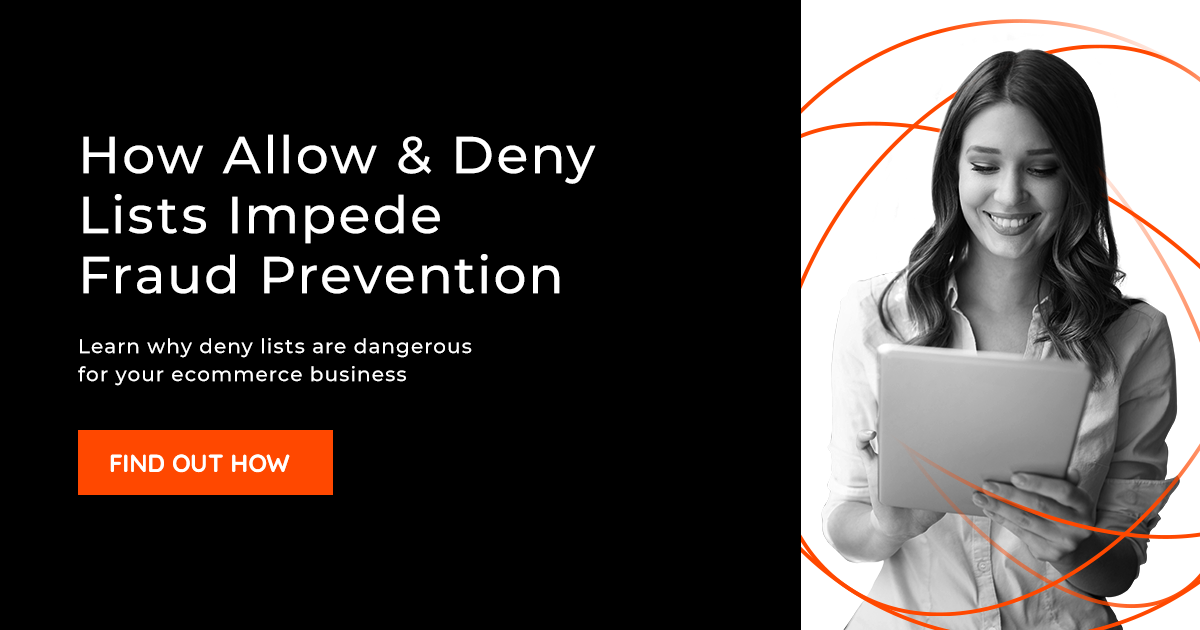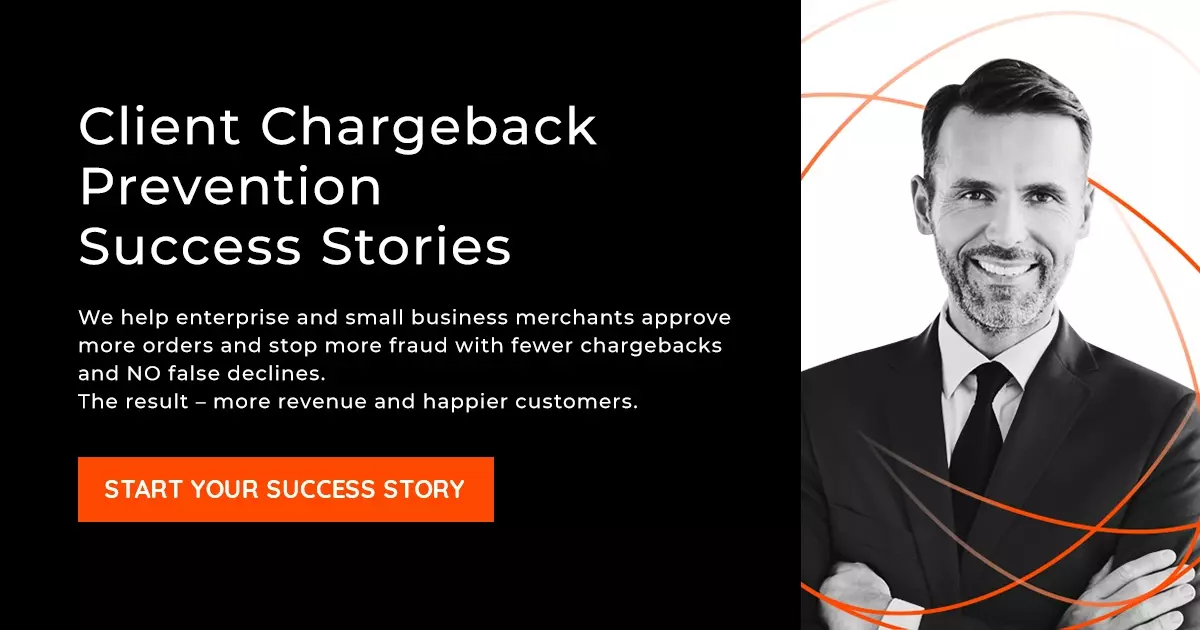SEASON 2 episode 09:
Why Merchants Should Avoid “Blacklists” in Name and Practice
For years, the fraud industry has been using the terms “blacklist” and “whitelist” to identify customers whose transactions would be automatically declined or approved by a given merchant. We think it’s time for a change.
At ClearSale, we’ve replaced “blacklist” and “whitelist” with “deny list” and “allow list”, respectively. Not only do these terms more accurately describe their nature, they help eliminate the implicit bias that’s associated with using “white” for positive things and “black” for negative things.
Even with a different name, deny lists aren’t a great idea. Why? Because any type of automatic rejection list does more than decline one transaction: It blocks the entire lifetime value of that customer – and can sweep innocent customers into its net as well.
In this episode of Gateway to Ecommerce, three of ClearSale’s leaders – Bruno Farinelli, Senior Director of Operations and Analytics; Carla Oliveira, Product Owner Specialist; and Yasmine Brasco, Senior Business Analytics Analyst – discuss ClearSale's take on deny lists and why merchants should be wary of tying chargebacks to them.
.
LISTEN NOW
EPISODE THOUGHT LEADERS
-

Yasmine Brasco
is a Business Analytics at ClearSale. She is a statistician and business enthusiast working in the fraud industry since 2019. She has a bachelor's degree in statistics and a certification as a fraud management specialist in payment methods in Mexico.
-

Bruno Farinelli
is a Fraud Analytics and Management expert. Bruno is really passionate about 2 things: fighting fraud and developing people. He joined ClearSale Brazil in 2012. Bruno holds a Bachelor's degree in Statistics from one of the Best Brazilian Universities and an MBA in Business Intelligence from one of the most well-known Technology Institute in Latin America.
-

Carla Oliveira
is a Product Owner, with more than 20 years of experience in digital solutions, working in several industries including health and finance. She has a multidisciplinary academic background including a Philosophy Bachelor title and a Master of Business Administration. She is passionate about solving problems and is inspired to help create a more diverse, inclusive, and equal society.
Podcast Episode Recap
COMPANIES RISK LOSING GOOD CUSTOMERS WITH DENY LISTS
Fraud victims have no idea their credit card, email and other sensitive information have been used for purchases until after the crime has been committed.
But when that same information is put on a deny list, companies wind up punishing the victim even further.
A better option is to flag suspicious transactions for manual review. That way the merchant can:
• Identify if the customer truly is a fraud risk.
• Determine if the transaction is valid.
• Make an informed decision that could result in a lifetime of revenue from a loyal customer.
Do deny lists ever make sense? In certain cases, yes. Legitimate cardholders who abuse the system or have a reputation for being difficult are candidates for being on a deny list – the merchant may simply prefer not to do business with them. But that is usually the exception.
Stay tuned for upcoming podcast updates and new episodes.
episode Transcript
(Note: Some audio in this transcript was recorded prior to our decision to use “deny lists” as a preferred term. "Blacklist" also known as "deny list" is a common industry term that ClearSale is helping to evolve both internally and globally.)
Intro
You're listening to Gateway to Ecommerce, a podcast by ClearSale. In this series, global ecommerce leaders discuss challenges, best practices, new tech, and secrets to success.
Narrator/Voice of ClearSale
Hello, and welcome back to the Gateway to Ecommerce podcast. In this episode, we have three ClearSale leaders, Carla Oliveira, Yasmine Brasco, and Bruno Farinelli, who discuss ClearSale's take on blacklists, deny lists, allow lists, and warning lists to prevent fraudsters from attacking your business. They'll also discuss why merchants need to be wary of tying chargebacks to deny lists. After listening to this episode, you'll be able to walk away with alternatives to blacklist that still protect your business and your brand. Before we get into today's episode, we invite you to read ClearSale's 2021 Consumer Behavior Analysis to unlock powerful insights about global consumer behavior. You can access the support by using the link in the show notes or visit clear.sale.com.
Now let's dive in. First, we have two women in technology leading the tech team at ClearSale, Carla, serving as a product owner and Yasmine, a data scientist. Let's hear from Yasmine and Carla, ClearSale's take on blacklists.
Yasmine Brasco
So here at, at ClearSale, we do not work with blacklist, we actually rename it to deny list recently.
Carla Oliveira
When we approach the term black, we always enforce the idea of systemic racism that black is bad. So you have a lot of terms in this industry and as well in our common phrases and sentences like black, black market. So it's the same, always keeping the idea that using of the term black it's a bad situation, a bad meaning. So it's because of this approach, it's a deny list and not a blacklist.
Narrator/Voice of ClearSale
Bruno goes on to talk about why this deny list approach is not a good idea.
Bruno Farinelli
We actually understand that this is a delicate concept to automatically decline everyone, because at some point you thought that transaction to be fraudulent. It's something very serious. One, because the decision could be wrong, right? So you might be making the wrong call. So you're saying that they're already fraudulent, but in reality, it is just someone that buys a lot for instance, or it's just someone that is sending a gift to someone very far away.
Narrator/Voice of ClearSale
The concern with automatically placing customers on a "blacklist" or deny list is you could be punishing valid customers instead of the fraudsters using their credentials. Here's what Bruno had to say.
Bruno Farinelli
You put that data in a "blacklist", you are not declining that transaction only, you are declining the whole lifetime value of that client. If that order is good, you're likely going to get a huge complaint on social media, and we know that it's hard to track those costs, which is something we constantly see. For example, my credit card was stolen and someone used my billing address. Eventually, someone, a fraudster could even invade my account on a website. If my account is "blacklisted", if my billing address is "blacklisted", I'm not going to be able to make any purchase on that website anymore because I was the victim of a fraudster.
Carla Oliveira
When a person goes to the (company) deny list, we are impacting this life in a digital world or not even in the physical way of the people can buy another thing, because there is a marking (a negative track record from a consumer) where another store can stop this kind of information and choose to not sell something to this person who is on the deny list.
Narrator/Voice of ClearSale
This podcast is brought to you by ClearSale, an ecommerce fraud prevention and protection solution that integrates seamlessly into your business, big or small. Your success requires more than fraud protection. ClearSale gives your customers a reason to trust your company and improves your bottom line. ClearSale's balanced approach to ecommerce fraud protection and prevention gives our clients the highest approval rates and lowest false positive rates in the industry. Welcome back. Automatically placing customers or customer data on a reject list is risky, but there's a way to flag those customers and their credentials for further investigation.
Bruno Farinelli
We do have a list, we call it a warning list, which comes into effect every time we see a re-attempt after an order was declined, but that is not going to decline the second order, we're just going to send the second order through a more extensive review process. So as we explain, we could be talking about someone that was defrauded. We could be talking of a false positive, it could have been a wrong decision, the first one, and then the customer is re-attempting because he's frustrated, whatever he was trying to get he still wants it. Using the secondary review is how we are able to actually not use a reject list, but still, be protected.
Narrator/Voice of ClearSale
When it comes to chargebacks, Bruno, doesn't recommend automatically adding those customers to a deny list either.
Bruno Farinelli
If you're feeding a reject list due to chargebacks, for example, we're talking about two months, or three months. The fraudster is not going to use the same information for all that long, so it's going to expire. And there are even some data that you should never "blacklist", like the IP. It doesn't make a lot of sense, because IPs are dynamic. Even though the possibilities are remote, the IP that I have tomorrow, it can belong to you guys like five days from me, because you guys are not close to me, but it could belong to my neighbor because IPs are dynamic, they change. The IP address that I have today can belong to someone else five days from now. So adding an IP to "blacklist" doesn't make any sense. And yes, perhaps it gives a psychological sense of security, but when it comes to protection, it doesn't give a lot of protection because fraudsters change their strategies. So they're going to try different data instead of the same data that worked three months ago.
Narrator/Voice of ClearSale
And what can happen when merchants do place valid customers on deny lists with no manual review or investigation? Here's a story about one of our customers and the lesson they learned about reject lists.
Bruno Farinelli
It was a case in which a customer decided to "blacklist" someone that was making a lot of purchases, like we're talking about 10 high-value purchases a week. And when I say high value, we're saying about like $3,000. The names on the orders, they didn't make a lot of sense. However, it was a celebrity in the end, and celebrities usually they don't utilize their real names when buying something. They don't want the attention. So they utilize, I don't know, an employer's name or eventually some other notification and anything like this. Our client lost not only a lot of money because of this list he had, but also he lost some very good branding. When analyzing the order, it was a tough case, because as it wasn't identified as being from the celebrity, there was a mediator in the middle, but still declining those automatically. It was not a good decision.
Narrator/Voice of ClearSale
There are exceptions to this rule. Sometimes customers may intentionally put customers on a deny list.
Bruno Farinelli
So it's a very delicate concept. We understand that in some cases it might make sense. Eventually, some of our clients, have customers they don't want to work with anymore because they had problems. So usually those problems have nothing to do with fraud, but they were disagreements when it comes to the quality of the product, returns and so goes on and they might say, "I don't want to work with this person in the future."
Narrator/Voice of ClearSale
Yasmine goes on further to talk about the disadvantage of using a deny list.
Yasmine Brasco
One simpler way to describe why this is not the best approach is that fraud is dynamic, and these lists are static. So now we are prevented from a phenomenon that is dynamic with static lists. It doesn't make sense. So this is not the best approach at all.
Narrator/Voice of ClearSale
Clients who use deny list, miss out on what ClearSale has to offer as Carla explains.
Carla Oliveira
Eliminate this kind of policy and let our core, our intelligence, even machine, or even human intelligence, make this decision and not follow a list where it's yes or no, it's positive or negative. Because when we do these things like that, we eliminate the intelligence, that ClearSale has developed through the years and through our competencies.
Narrator/Voice of ClearSale
Yasmine, Carla and Bruno offered a lot of insight about deny lists, warning lists, chargebacks, and the need to carefully evaluate customer credentials to ensure you are not blocking valid customers for life. If you want to take a deeper dive into this topic, you can visit our website at clear.sale.com to learn more about the risks of automatically using deny list to decline customer transactions. It is also linked in the description of this podcast, along with another resource to get you started. Thanks again for listening to Gateway to Ecommerce.
Outro
If you like what you heard today, be sure to stay connected and subscribe or follow on all major platforms like Apple, Spotify, or iHeart. If you have a question or would like us to cover a topic, email us at podcast@clear.sale. We would love to hear from you. To learn how to prevent ecommerce fraud, visit our website, we have a ton of resources dedicated to this topic that can help you on your ecommerce journey at www.clear.sale. Until next time.
For more ecommerce insights, visit us on our website at clear.sale














